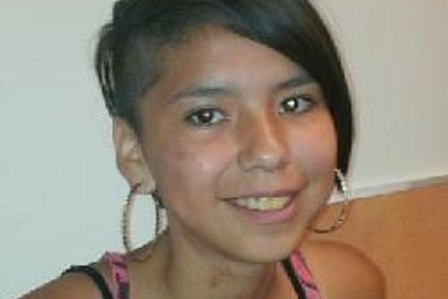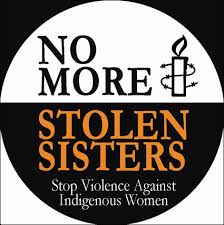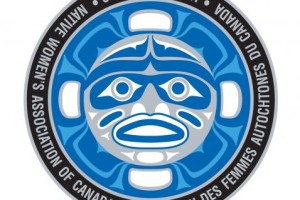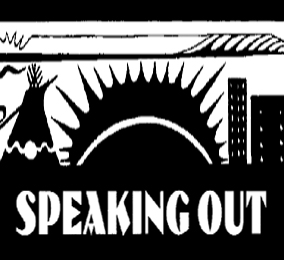Winnipeg police went into the Red River last month responding to a report by an off-duty police officer who had seen a man struggling to keep his head above water. About six hours after the search began they did find his body; the man’s name was Faron Hall, the same man that was known locally as the “homeless hero” who’d rescued two people in 2009 from drowning in the same river that took his life. But several hours before his body was discovered, police, searching through the muddied waters near the Forks of the Red River, found another body, that of 15 year old Tina Fontaine, a young Aboriginal girl who had been under the care of the province’s child welfare system. Originally from the Sagkeeng First Nation, the teenager was unhappy with the situation or the home that she had been put into and had run away – as she had often done before.

The murder of 15 year old Tina Fontaine has prompted a mass outcry for a National Inquiry into the large numbers of missing and murdered Aboriginal women in Canada. Article by John Copley
The discovery of Tina Fontaine’s body, wrapped in a tarp and thrust beneath the waters of the river, came just a week after she’d been reported missing. The last time anyone had seen her she was near the downtown core in an area known as Portage Place. Tina’s body was discovered just one week after another Aboriginal woman, Samantha Paul, was found near Kamloops and two months after the body of Marlene Bird was found in Saskatchewan. Her tortured body was badly beaten and burned.
Death at the hands of callous, uncaring murderers isn’t a new phenomena in Canada – more than 1200 Aboriginal women and girls have gone missing or have been murdered in this country since 1980; nearly half of them were found in Manitoba. Some critics say that figure pales in comparison to the 4000 that they believe have perished during the course of the past 50 years.
The cries for justice have been loud and clear.
“She was a petite little thing, barely in the city for a month,” said Winnipeg police sergeant John O’Donovan. “This child has been murdered; society should be horrified. She had run away; she had a history of that but I am sure she didn’t realize the danger she was putting herself into.”
Manitoba’s Aboriginal Affairs Minister Eric Robinson said it was “saddening to see Aboriginal families continue to suffer” because of the ongoing cases of missing and murdered women in Canada.

A social media campaign was launched to pressure the federal government into calling a National Inquiry into the epidemic of missing and murdered Aboriginal women in Canada.
“It just gets trying after a while to see the suffering, the human suffering, and no answers coming to the families about what happened to their loved ones,” Robinson stated. Asked why Prime Minister Stephen Harper’s Conservative government refuses to initiate a public inquiry to get to the bottom of this vicious cycle of violence and murder, he said: “They don’t view it as a priority; I don’t know what their policy advisors are telling them.”
Federal Justice Minister Peter MacKay, offered this inane response: “Now is the time to take action, not to continue to study the issue.”
Action? The Harper government doesn’t take action when it comes to issues and violations against Aboriginal peoples; it sits back on its laurels making promises and smiling blandly. Canadians have been calling for an inquiry almost since the moment this so-called Conservative government came to power nearly a decade ago – the cries for help have fallen on deaf ears.
Aboriginal families in Manitoba aren’t the only people who are making a noise about the recent discovery of yet another young Aboriginal girl, dead at the hands of some psychopath. Many individuals, collectives and organizations have called upon the Harper government to take action, to hold a public inquiry but they have all been ignored or pooh-poohed with stupid comments like those from the PM himself when he said, “We should not view this as a sociological phenomenon. We should view it as crime.”
On August 19 Native Women’s Association of Canada (NWAC) President Michéle Audette, said that tragically, “Every week now, we hear of another Aboriginal girl or woman, who has gone missing, to be found brutally murdered. This must stop.”
As indicated in the recently released Royal Canadian Mounted Police (RCMP) report, Missing and Murdered Aboriginal Women: A National Operational Overview, the total number of Aboriginal who have been identified as missing or murdered clearly indicates that they are over-represented among all of Canada’s missing and murdered women. 
“This is a national disgrace, a national tragedy and a travesty of justice for Aboriginal women and is an issue that all Canadians have to take ownership of,” stated Audette.
NWAC, and its many supporters have been relentless in their call for a national public inquiry and a comprehensive action plan to address this crisis.
“With the ever increasing number of missing and murdered Aboriginal girls and women, there is an obvious need for a National Public Inquiry – nothing else will do,” Audette assured.
On September 15, after a surge of condemnation by Canadians, the federal government released a statement that promises to do more to address the issues of family violence and violent crimes against Aboriginal women and girls. Announced by Dr. K. Kellie Leitch, Minister of Labour and Minister of Status of Women, the new action plan makes new promises, adds another $25 million (over five years) to address violence issues and supports the creation of a DNA-based Missing Persons Index.
With an election year approaching and social media sites spearheading campaigns designed to hold governments responsible and accountable when it comes to missing and murdered Aboriginal women, the federal government had little option but to soften its approach on these serious matters. When the heads of provincial governments speak out about the insanity of doing nothing, and question the integrity of our federal leadership, Ottawa has little choice but to speak up. When women like Cornwall, Ontario resident Holly Jarret launch social media campaigns asking people to take a photo of themselves holding a sign that reads, “AmINext” – someone in government has to take some positive action.

The Edmonton Sisters in Spirit are holding a Stolen Sisters and Brothers Awareness Walk on October 4 leaving the Boyle Street Plaza at 12:45 arriving at the Alberta Legislature Grounds at 4 pm.
“I really think that if people understand all of these issues and we start talking about them,” said Jarret of her recently launched social media campaign, “I really think the general Canadian public is not going to let these issues go.”
So while it’s a case of government making more promises, it must be remembered that the timing of the announcement may well have been forced by unhappy Canadians and a government worried about its continuing failure to measure-up at the polls. Positive change in the lives of Aboriginal people would indeed be a welcoming scenario – but government promises have been made before – and they’ve been broken so many times it’s hard to believe they are finally getting it right – especially during a time when election promises are part and parcel of the moment.
When Tina Fontaine’s body was found, Claudette Dumont-Smith, executive director of the NWAC asked: “Who deserves that at 15 years old? It’s a blemish on Canada and it’s a blemish on all Canadians because this issue is not being addressed.”
The NWAC has made it clear that Fontaine’s death is “the starting point” of what should be a path toward a national inquiry. “We figure that’s the only way we’ll begin to resolve this crisis situation.” The association dismissed claims by government that it was taking different steps to find answers.
“We’re not hearing that,” Dumont-Smith said. “We’re not seeing any change, any improvement in the situation. We are calling for a national public inquiry and we will continue to call for that. This just can’t go on.”
If nearly 1,200 women of any other ethnic origin went missing or were found murdered in Canada, she said, the reaction would be much different. “There would be an outcry. There would be protests in the streets. This is not an Aboriginal issue. It’s a Canadian issue. It’s really a blemish on Canada that innocent lives are being taken now just about every month. What can a 15-year-old do to deserve that?”
The Canadian Human Rights Commission’s acting chief commissioner, David Langtry said it is time for answers, time for action. He doesn’t want to see any more murdered Aboriginal women become little more than statistics for study.
“We have a duty to ensure she (Tine Fontaine) leaves a legacy, and that her legacy is to bring an end
to the chronic cycle of violence that rips Aboriginal women and girls from the fabric of family and community at this alarming rate,” he said in a recent statement. “This is not acceptable in a country like Canada. It is time for a full public inquiry into the root causes of so many deaths and disappearances of Aboriginal women and girls. It is time for a national action plan to confront this issue.”
Ottawa has launched some initiatives to deal with its own wrongdoings when it comes to Aboriginal peoples, most importantly, the establishment of the Truth and Reconciliation Commission, whose mandate was to learn the truth about the atrocities that took place during the 150 year reign of the Indian Residential School system. But reconciliation, say many Aboriginal leaders, cannot and will not take place while government sits back on its laurels and refuses to deal with the thousands of cases of missing and murdered Aboriginal women.
When the next federal election takes place in Canada, Canadians won’t have to think too hard about why they want to get rid of Stephen Harper’s “new” Conservative government, a regime that puts industry dollars and shareholder profits ahead of murdered women, human rights violations, safe drinking water, a friendly environment and plain common sense.
by John Copley



Be the first to comment on "Canadians push for a National Inquiry into missing and murdered Aboriginal women"